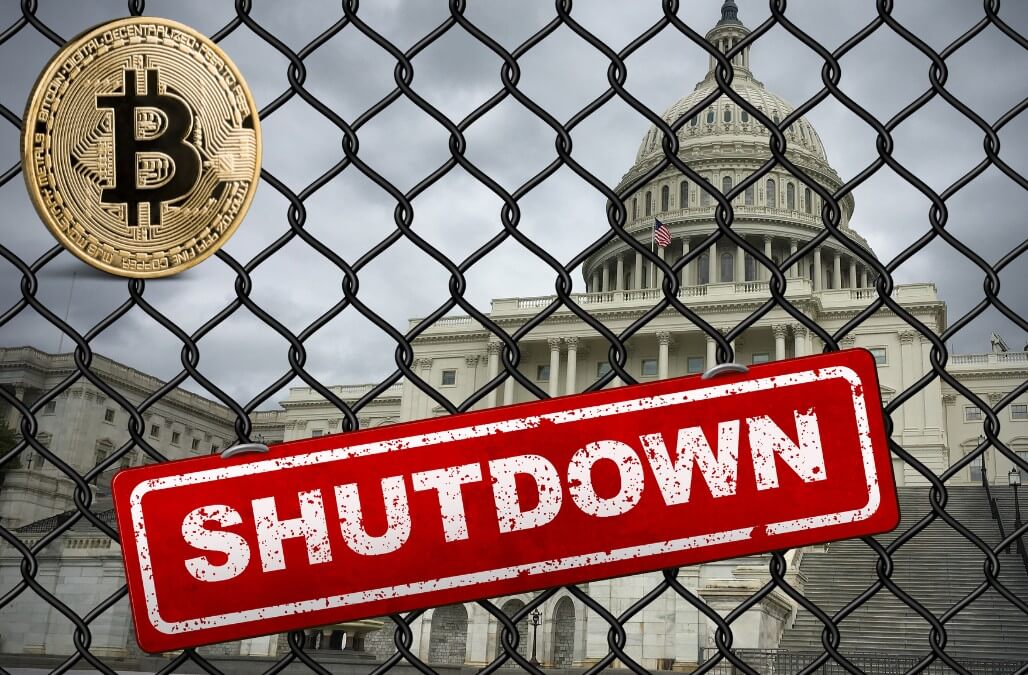The U.S. government shutdown is less than 24 hours away and Bitcoin’s performance outcome remains uncertain. Today also marks exactly four months since the debt ceiling crisis. Since the apparent resolution of the debt ceiling crisis, the U.S. has accumulated an additional $3 trillion in debt and now faces the imminent possibility of a government shutdown.
Interestingly, some market participants view the potential government shutdown as a bullish factor for cryptocurrencies. This perspective aligns with the narrative that government procedures do not directly impact non-sovereign currencies like cryptocurrencies and could serve as a haven during such events.
How the government shutdown will affect Bitcoin
Federal agencies and services deemed non-essential may be temporarily halted during a U.S. government shutdown. That can lead to furloughs for federal employees, who may be placed on unpaid leave or required to work without receiving their paychecks. These situations often arise due to political impasses and fiscal disagreements within Congress.
Bitcoin operates as a decentralized digital currency, functioning independently of government authority. Market dynamics, including supply and demand, and investor sentiment influence its value. However, it’s important to note that the Bitcoin market is not completely isolated from the broader financial landscape, and events such as government shutdowns can have an impact.
One significant characteristic of Bitcoin’s behavior during U.S. government shutdowns is increased market uncertainty. As the shutdown’s duration and potential economic consequences remain uncertain, investors and traders may adopt a more risk-averse approach. This cautious sentiment can extend to the crypto, potentially leading to higher price volatility.
The crypto’s price has historically experienced fluctuations during government shutdowns, with movements in both upward and downward directions. Various factors, including global economic conditions, investor sentiment, and the overall stability of financial markets, influence the extent and direction of these price swings.
Some experts suggest that Bitcoin’s performance may outpace gold as the U.S. government nears a shutdown due to reaching the debt limit. That could prompt investors to turn to alternative scarce assets. Bitcoin’s substantial market capitalization of $500 billion allows for significant price movements, even with relatively smaller inflows. Additionally, central banks might be compelled to sell their gold reserves to cover expenses, further enhancing Bitcoin’s attractiveness.
While gold remains a steadfast choice among safe-haven assets, Bitcoin’s impressive gains and lower equivalent inflation rate position it as a strong contender for investors seeking alternative stores of value. Nevertheless, ongoing economic uncertainty and the Federal Reserve’s monetary policies will continue to impact both assets.
Crypto bills continue to delay
Indeed, the potential for a government shutdown could complicate efforts to establish specific regulatory frameworks for the cryptocurrency sector in the U.S. If Congress faces a disruption, it may impede progress towards legislation tailored for cryptocurrencies. This could delay important regulatory developments for the industry.
In the event of a U.S. government shutdown, approvals for new exchange-traded funds (ETFs), including BTC spot ETFs, could face significant delays. If Congress fails to provide funding for the fiscal year starting October 1, hundreds of thousands of federal workers, including nearly 90% of the Securities and Exchange Commission (SEC) employees, would be furloughed without pay. That could lead to a skeletal staff operating at the SEC, potentially hindering the approval process for new ETFs.
SEC Chair Gary Gensler warned of the agency’s limited capacity during a shutdown. The decision on spot Bitcoin ETF applications, which has already been pushed back to mid-October, could face further delays if the shutdown persists. This situation could heighten volatility in listed funds.
Indeed, the potential government shutdown could further delay decisions regarding spot Bitcoin ETF applications, adding to the already existing impatience among investors and issuers. The prolonged uncertainty surrounding this product may lead to increased volatility in listed funds, as analysts caution.
What’s next for Bitcoin’s (BTC) price?
During previous U.S. government shutdowns, Bitcoin experienced notable price fluctuations. In 2013, a 16-day shutdown led to significant volatility, with Bitcoin initially surging to record highs as some investors turned to digital assets. The longest shutdown in U.S. history, lasting 35 days from December 2018 to January 2019, saw a more nuanced response from Bitcoin, with fluctuation but no continuous trend.
In the face of the current government shutdown threat, cryptocurrency markets have remained relatively resilient compared to stock sell-offs. Asgard, a research firm, holds a constructive outlook for risk assets in Q4. They anticipate a short-term move for Bitcoin between $28,500 and a possible peak at $30,000, as long as Bitcoin doesn’t dip below $26,000.
Markus Thielen, Head of Research at Matrixport, noted that in the last decade, the market was up eight out of ten times in October, with an average increase of 22%. He emphasized that if interest rates become more dovish, Bitcoin could experience a substantial breakout.
Thielen also highlighted that Bitcoin miners, particularly Marathon Digital, have become more operationally efficient. However, he noted that with the halving event still a prominent consideration, Marathon Digital estimated an increase in mining costs from $24,000 to $29,000 per Bitcoin. To secure a significant rally, Thielen suggests that Bitcoin needs to surpass $30,000.





